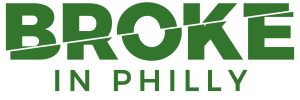Since workers at a local Curaleaf dispensary on Passyunk Ave. voted to unionize in Dec., 2021, some of its LGBTQ+ employees have experienced unfair treatment from their superiors, former Curaleaf employee Frankie Kelley told PGN. Employees at the Philly dispensary are the most recent crop of industry staffers in Pennsylvania to join UFCW Local 1776, Pa.’s cannabis union.
“Not only did Curaleaf put in a very intense effort to not have us unionize, now there’s a not very veiled effort to single out what seems to be mostly queer employees and the ones who were particularly vocal in unionzing effort,” Kelley said. They started working at Curaleaf’s Philadelphia location in summer of 2020 but were let go this past February. The dispensary employs approximately 22 non-management hourly employees.
“Our original push to unionize came because there were company-wide hour cuts that were happening about six months ago,” Kelley said.
Kelley and the current Curaleaf staffers have been working with the union to determine the best course of action to take in response to the alleged labor violations and workplace mistreatment. The two parties have not yet begun the negotiation process, and no unfair labor practice charges have been filed.
“The first outreach is to the company and see if it can be resolved,” said Wendell Young IV, president of Local 1776.
When Kelley began working at Curaleaf’s Passyunk location, they were the only out queer person on staff and the first out trans employee to work at the store, they said.
“Since the beginning, I have dealt with an unsafe environment,” Kelley said. “I have hope that we’ll be able to improve it for people in the future, but that environment has had a significant toll on my mental health.”
In the time since Kelley started working at the Passyunk location, more out LGBTQ employees joined the staff. Anna, a former Curaleaf employee who requested that they go by their first name only, said that they transitioned to using they/them pronouns while working at Curaleaf. However, they were repeatedly misgendered by management, despite being open about their pronouns.
“Pretty much every day I was misgendered by management,” Anna said. “I noticed that some of the assistant managers would slip up and I found I had to correct them. It became more of an issue when a new manager started and had only ever known me by using they/them pronouns.”
According to the Equal Employment Opportunity Commission’s section on sexual orientation and gender identity discrimination, “although accidental misuse of a transgender employee’s preferred name and pronouns does not violate Title VII (prohibition on discrimination because of sex), intentionally and repeatedly using the wrong name and pronouns to refer to a transgender employee could contribute to an unlawful hostile work environment.”
However, the alleged worker mistreatment goes beyond managers misgendering their employees.
Kelley said that local Curaleaf management and Human Resources teams attempted to manipulate some of their staffers, frequently switching up rules to justify writing people up and admonishing employees for discussing rule changes. When Kelley asked their manager to stop misgendering their fellow employees and explained the importance of diversity training for management, their manager wrote them up for threatening them, Kelley said.
“They told me not to talk about this because my coworkers didn’t feel the same way I felt about the manager,” Kelley said. “This came from HR. That caused me an incredible amount of stress that day. I did talk to my coworkers about it, and multiple people had heard the interaction and assured me that it did not go the way [my manager] said it went. They tried to stick up for me and tried to contact HR.”
Ultimately, Kelley found the company’s system of reporting issues to be amorphous and ineffective. “I can’t get in touch with any management besides the ones who I have complaints about,” Kelley said. “That’s multiple people, it’s not just me.”
When PGN contacted Curaleaf for comment, they denied the claims in a written statement.
“Curaleaf takes all reports of harassment seriously by promptly and objectively investigating all reports and by offering team members an anonymous avenue for reporting harassment via an anonymous ethics hotline,” Curaleaf’s statement reads in part. “Curaleaf maintains an anti-harassment policy and training and code of conduct that centers on our core values of diversity and respect.”
Multiple times, Kelley and Anna asked if their managers would undergo LGBTQ education or training, to no avail.
“Every time we would push that, we would get the response, ‘we’re looking into it,’ something along those lines, very dismissive,” Anna said. “I don’t think anything ever happened with it.”
Instead, Kelley and Anna said that management showed employees a couple of LGBTQ-centric videos and posted what Anna referred to as an outdated guide about how to talk to one’s coworkers about pronouns.
“It seems that [company leadership] is not really doing much to inform their HR staff [or] their upper management on LGBTQ+ policy,” said a Curaleaf staffer who requested to remain anonymous.
In their written statement, Curaleaf denied the claims of mistreatment directed toward its LGBTQ staffers at the Philly location.
“The LGBTQIA+ community is important to Curaleaf. The company supports team members from this community through a companywide Employee Resource Group called QUSH, which stands for Queer-Centered Unity Service Huddle. The group’s mission is to support and uplift the queer community by educating the company about queerness and allyship.”
Curaleaf’s statement further reads, “Curaleaf is committed to a collaborative culture that allows our team to feel heard, supported and respected. While we believe we offer competitive compensation and benefits, a flexible work environment and positive working relationships where team members would not feel there is a need for union representation, we respect the voices of our team members who choose to unionize.”
Kelley and Anna told PGN that after it was clear that unionizing efforts were underway, Curaleaf managers showed them and their co-workers video presentations dissuading them from unionizing.
“The last presentation that we had before our union vote, the last slide said ‘vote no,’” Anna said. “I asked, ‘so just to clarify, Curaleaf’s position is asking us to vote no?’ And a manger said, ‘that’s not what we’re saying. We’re saying if you want to keep Curaleaf the way that it is, if you don’t want all these bad changes that a union is going to bring, we’re asking you to vote no.’”
When Kelley used their paid sick leave hours to take time off, they said that they were asked to find coverage for their shifts. The Curaleaf staffer who requested to remain anonymous confirmed the requirement.
“The day before my yearly review, [local Curaleaf management] had sent out a message saying that if we were going to call out, we had to get our shifts covered,” the staffer said. “By sick pay law in Philadelphia, that’s illegal. If you’re using your paid sick hours, it’s illegal for them to ask you to find coverage for that shift.”
In response to a request for comment on alleged labor violations, a Curaleaf representative issued the following company statement:
“All concerns raised by team members are taken seriously, promptly investigated and appropriately resolved. Due to privacy and confidentiality requirements, we are unable to comment further on specific claims.”

